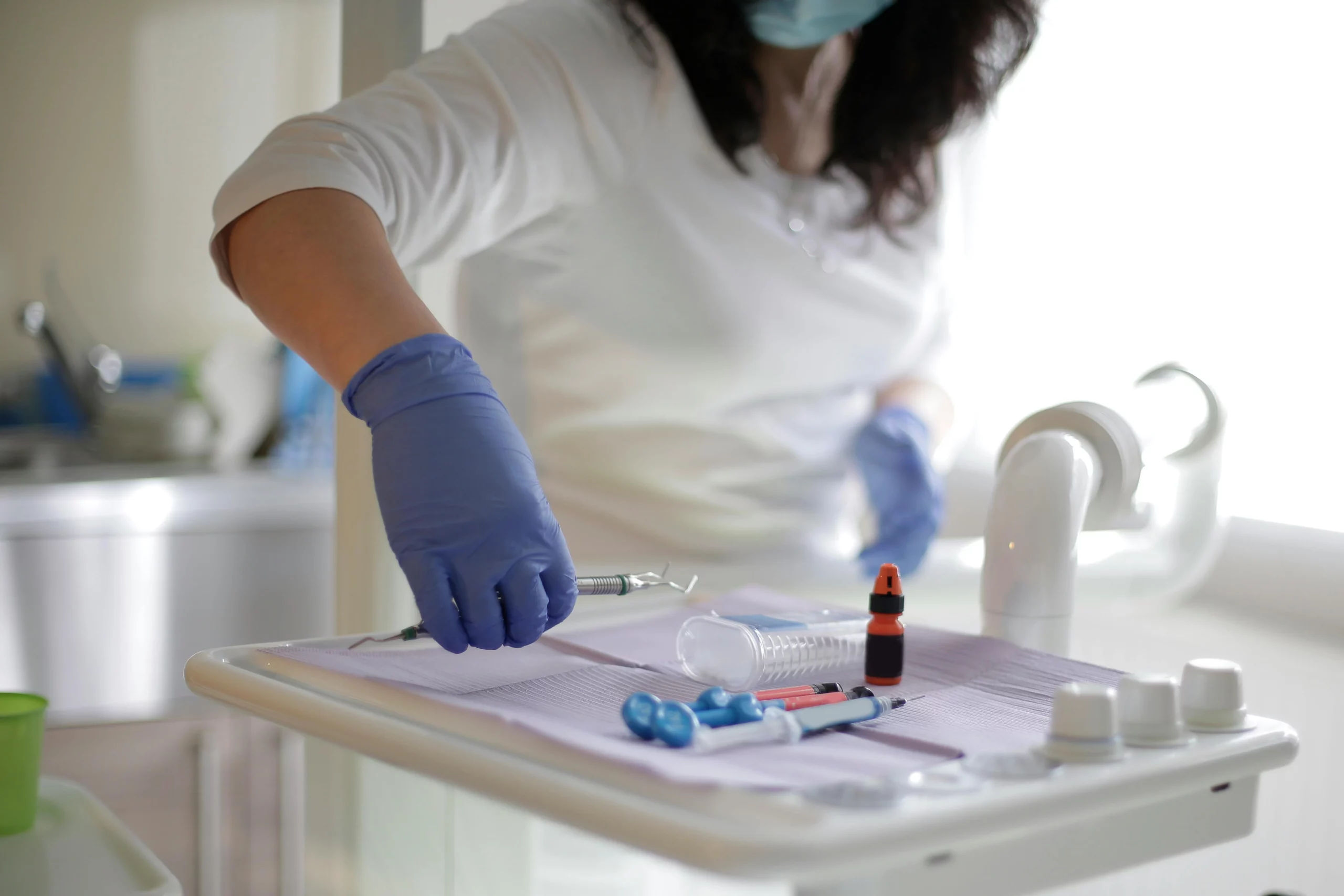What is a Dialysis Technician?
A dialysis technician, also known as a renal dialysis technician or hemodialysis technician, is a skilled healthcare professional responsible for operating and maintaining dialysis equipment, monitoring patients during dialysis treatments, and providing essential support to patients and healthcare providers in dialysis centers or hospitals.
Dialysis Technician Job Description
We are currently seeking dedicated and compassionate dialysis technicians to join our renowned healthcare team. As vital members of our dialysis unit, successful candidates will play a crucial role in delivering life-sustaining dialysis treatments to patients with kidney failure or impaired kidney function.
As a dialysis technician, you will have the opportunity to make a meaningful difference in patients’ lives by ensuring the safe and effective delivery of dialysis therapy and supporting patients’ physical and emotional well-being throughout their treatment sessions.
The ideal candidates will possess strong technical skills, attention to detail, and a compassionate demeanor to provide high-quality care to patients undergoing dialysis treatment.
What Does a Dialysis Technician Do?
- Dialysis Treatment Delivery: Prepare dialysis equipment, machines, and supplies for patient treatments, ensuring cleanliness, functionality, and readiness according to established protocols and infection control standards to promote patient safety and treatment effectiveness.
- Assist patients with vascular access cannulation or catheter connection, monitor patients’ vital signs, and observe patients’ responses during dialysis treatments, detecting and reporting any adverse reactions or complications promptly to healthcare providers.
- Operate hemodialysis machines, monitor dialysis parameters, and adjust treatment parameters as directed by healthcare providers to ensure optimal dialysis adequacy and patient comfort during treatment sessions.
- Patient Care and Support: Educate patients and their families about dialysis procedures, treatment plans, dietary restrictions, fluid restrictions, and medication management, providing clear instructions, information, and emotional support to promote patient understanding, compliance, and self-care.
- Assist patients with activities of daily living (ADLs), including positioning, ambulation, and toileting, and provide personal care and hygiene assistance as needed during dialysis treatments, respecting patients’ dignity, privacy, and cultural preferences.
- Monitor patients’ fluid intake and output, document treatment-related information and observations accurately and comprehensively in medical records or electronic health records (EHRs), and communicate effectively with healthcare providers, nurses, and other interdisciplinary team members to ensure coordinated and holistic patient care.
- Equipment Maintenance and Quality Assurance: Perform routine maintenance, calibration, and quality control checks on dialysis equipment, machines, and water treatment systems, following manufacturer guidelines and regulatory requirements to ensure equipment reliability, performance, and compliance with safety standards.
- Monitor water treatment systems, conduct water quality testing, and maintain water treatment logs and documentation to ensure the purity, safety, and adequacy of dialysis water used in hemodialysis treatments, preventing microbial contamination and waterborne infections.
- Adhere to infection control protocols, standard precautions, and personal protective equipment (PPE) guidelines, including hand hygiene, barrier precautions, and environmental cleaning, to prevent healthcare-associated infections (HAIs) and ensure a safe and sterile dialysis environment for patients and staff.
How Much Do Dialysis Technicians Make?
The average dialysis technician salary in the USA is $45,960 per year or $22.10 per hour. Entry level positions start at $39,906 per year while most experienced workers make up to $65,985 per year.
Skill Requirements
- Technical Competence: Dialysis technicians must possess strong technical skills and proficiency in operating and maintaining dialysis equipment, machines, and water treatment systems to perform dialysis treatments safely, accurately, and effectively.
- Patient-Centered Care: Dialysis technicians should demonstrate empathy, compassion, and patience in providing care and support to patients undergoing dialysis treatment, fostering a therapeutic and supportive environment that promotes patient comfort, dignity, and well-being.
- Attention to Detail: Dialysis technicians must exhibit meticulous attention to detail in monitoring patients’ vital signs, assessing treatment parameters, documenting treatment-related information, and adhering to infection control protocols and safety standards to ensure accurate, reliable, and high-quality patient care.
- Communication Skills: Effective communication skills, both verbal and written, are essential for dialysis technicians to interact with patients, families, healthcare providers, and interdisciplinary team members, facilitating clear and accurate information exchange, education, and collaboration in patient care.
- Problem-Solving Abilities: Dialysis technicians should demonstrate strong problem-solving skills, critical thinking abilities, and adaptability in troubleshooting technical issues, resolving equipment malfunctions, and addressing patient concerns or emergencies during dialysis treatments to ensure patient safety and treatment effectiveness.
- Professionalism and Ethics: Dialysis technicians should uphold professional standards of practice, ethical principles, and regulatory requirements in dialysis care, including patient confidentiality, autonomy, beneficence, nonmaleficence, and justice, to maintain trust, integrity, and ethical conduct in patient interactions and healthcare delivery.
- Continuous Learning and Professional Development: Dialysis technicians are encouraged to engage in ongoing learning, continuing education, and professional development activities to enhance technical skills, expand knowledge of dialysis practice, and stay current with advances in dialysis technology, patient care, and quality improvement initiatives.
Example KPIs for a Dialysis Technician
- Dialysis Treatment Compliance: This KPI measures dialysis technicians’ adherence to treatment protocols, policies, and procedures in delivering dialysis therapy, monitoring treatment parameters, and documenting treatment-related information accurately and comprehensively to ensure patient safety and treatment effectiveness.
- Patient Satisfaction and Experience: This KPI evaluates dialysis technicians’ effectiveness in providing patient-centered care, addressing patient needs and concerns, and promoting positive patient experiences during dialysis treatments, using patient satisfaction surveys and feedback to assess and improve patient care delivery.
- Equipment Maintenance and Safety: This KPI assesses dialysis technicians’ proficiency in performing equipment maintenance, quality control checks, and infection control practices to ensure the reliability, safety, and sterility of dialysis equipment and water treatment systems, reducing the risk of equipment-related incidents and infections.
- Team Collaboration and Communication: This KPI measures dialysis technicians’ collaboration, communication, and teamwork with healthcare providers, nurses, and other interdisciplinary team members to facilitate coordinated and holistic patient care, promote effective information exchange, and address patient care needs and challenges in the dialysis unit.
- Continuous Learning and Professional Development: This KPI evaluates dialysis technicians’ engagement in ongoing learning, continuing education, and professional development activities to enhance technical skills, expand knowledge of dialysis practice, and stay abreast of regulatory updates and best practices in dialysis care.
How Can Glider AI Help You with Hiring a Dialysis Technician?
Glider’s recruitment platform is designed to prioritize competency over credentials, enabling organizations to assess candidates’ skills objectively and efficiently. Utilize Glider AI Skill Intelligence™ to streamline the hiring process, identify top-quality Dialysis Technician candidates, and ensure a mobile-first, candidate-friendly experience.
Glider AI’s Unique Features
- Verify Medical Licenses
- Validate Hundreds of Medical, Clinical, and Technical Skills
- Ensure Hiring Compliance
- Conversational Chatbot for Talent Screening
- Powerful candidate analytics
- Streamline Healthcare Hiring with AI and Automation
Go ahead and spotlight your Dialysis Technician with Glider AI today!
Schedule a Demo or contact us at info@glider.ai




